
views
X
Research source
Categorizing the Expression

Determine whether the speech is protected. While the First Amendment does prohibit government actors from making any law abridging freedom of speech, the Supreme Court has determined that some forms of speech can be prohibited or restricted in certain contexts. For example, obscene speech is not protected by the First Amendment at all. What is categorized as obscene may depend on the intended audience, because the Supreme Court has recognized that some material may be available to adults that should be forbidden to minors. Other types of speech also remain unprotected by the First Amendment, either in or out of school, including true threats as well as untrue statements (which can be suppressed under libel and slander laws). School-sponsored events such as athletic contests or school ceremonies, as well as school-sponsored publications such as the student newspaper, are not considered open public forums. However, permissible restrictions tend to relate to how the statement is made rather than what is said. For example, in one case the Supreme Court ruled a high school did not violate a student's First Amendment rights when they suspended him for delivering a student government campaign speech laced with sexual innuendo at a school assembly. Generally, schools can prohibit speech which is vulgar, sexually explicit, or condones illegal activity. The subject matter of your speech or expression may determine the degree of protection it has under the First Amendment. Political speech typically enjoys the strongest protection, while other types of speech may be limited or restricted.
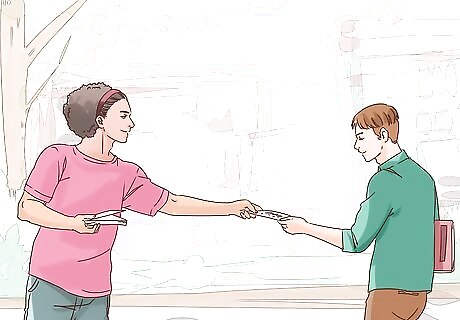
Quantify potential disruptions. School officials have a valid interest in restricting freedom of speech or assembly if necessary to maintain a peaceful environment conducive to learning, meaning your speech may be restricted if it would cause a substantial disruption. The case that established this rule involved students who wore black armbands to school to protest the Vietnam War. This type of speech is known as symbolic speech, and is protected by the First Amendment. While other students in the class may have noticed or commented on the black armbands initially, this symbolic protest generally wouldn't have caused a significant disruption in the classroom. This classification generally relates to the way in which the expression is delivered or shared, rather than what is said. Outside of school, the government can restrict the time and place of expression protected by the First Amendment – for example, by use of noise ordinances in certain areas, or by requiring a permit to stage a protest on public property. School officials have similar rights to restrict speech by students that otherwise enjoys constitutional protection, if that speech would cause a substantial disruption to the school's educational activities. For example, if you have leaflets that you want to hand out to your fellow students, your school may permit you to hand them out in the hallways, but not during class.
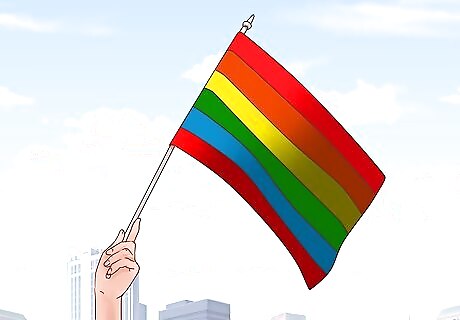
Identify who is involved in the speech or activity. Since the First Amendment prohibits government actors from "establishing" a government religion, or promoting or advocating the practice of a particular faith, teachers and school officials generally cannot be involved in student religious groups. Prayer is not outlawed in schools. However, the school cannot promote religion or encourage students to pray or to encourage students to believe in a certain way. This means that schools can't begin the day with a prayer led by teachers or school administrators. Prayers also cannot be led by a student if that student's prayer takes place in the classroom or at a school-sponsored event or function such as a graduation ceremony or an athletic contest. However, if a group of students wants to start a religious club or group at the school, the school must permit that group if the school allows other extra-curricular student groups. The same applies to LGBTQ student groups or student groups devoted to social or political issues. If the school allows student groups such as Future Farmers of America or Young Republicans, it also must allow a student ACLU chapter, gay rights group, or Christian group if there is demonstrated student interest for such a group. These groups may have faculty advisors to keep group meetings on task and coordinate group activities, but the faculty advisor cannot be involved in the group's recruiting efforts, and participation in the group can't affect any student's academic standing. For example, a faculty advisor could not give extra credit in her English class to students who attended a rally or protest.
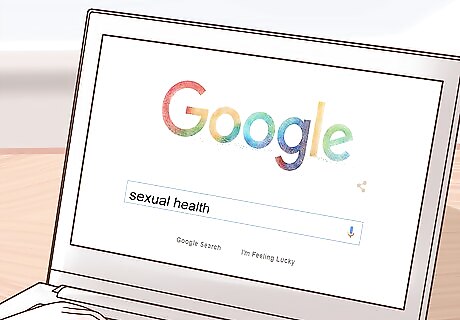
Understand constitutionally valid restrictions. Even if your speech or activity is protected by the First Amendment, some restrictions remain permissible in the school setting because of the purpose of school and the age of students. Your First Amendment rights relate not just to your speech, but to the speech available to you – such as on the internet or in books available in the library. Schools have the right to ban books or content that serves no educational purpose. However, your school cannot ban a book just because administrative officials disagree with the ideas or beliefs expressed in the book. Schools also have the right to put filters on school computers and have computer use policies that forbid objectionable content. However, sometimes the filters block content that the First Amendment protects your right to access, such as websites about sexual health or gender identity. If you bring this matter up with librarians or school officials, they should have the ability to "white list" these types of websites so students can access them. If they refuse to do so, you may have an argument that the school is violating your First Amendment rights.
Investigating the Facts
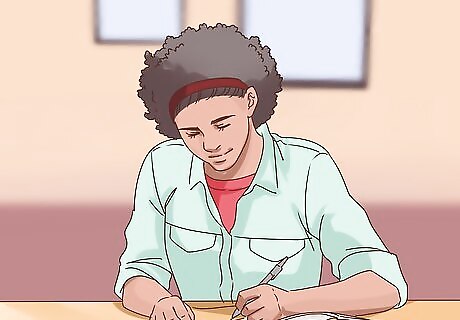
Write down the details. If you believe your school has violated your First Amendment rights, write down an account of the incident that occurred, including as many specific facts as you can. You want to make a record as soon as possible after the incident occurs while the details are still fresh in your mind. Include information about when and where the incident took place, and what you were told by the school officials who suppressed your speech or activity. For example, if you work for the school newspaper and your school refused to allow you to publish a student editorial on abortion, write down the exact circumstances in which you were told the editorial would not be published and why. Make note of the name and job title of any school official who communicated the school's decision to you. Keep a written copy of the speech that was suppressed. If you end up filing a lawsuit, the court will need to know exactly what was said so it can evaluate the school's decision. If the First Amendment violation relates to your freedom of religion or right to assembly, include as many details as possible about the people involved in the activity and the permission you sought from the school. You also might want to make note of other groups who were granted similar permissions, to show that the school's actions were related to the subject matter of your speech or activity and not the act itself. For example, suppose you've started an LGBTQ student group and asked the school for permission to hold meetings in the cafeteria after school once a week. The school refused to allow you to hold your meetings there, despite the fact that it allows other groups to hold meetings in the cafeteria after school. The fact that the school permits some groups to meet on school property, but not yours, may be evidence that the school is violating your First Amendment right to assemble.

Identify the context of the speech or activity. Schools have greater power to restrict school-sponsored or school-supported activities or events than they do speech or activities conducted by students independently. If your speech or activity is suppressed by your school, consider offering an alternative. For example, if the school says it would be too disruptive for you to hand out pro-choice flyers in class, ask if you can distribute them in the hallways between classes. Suppose your school also refuses to allow you to distribute your flyers in the hallways between classes, saying it would disrupt the flow of traffic and cause students to be late to class. You might then propose handing out the flyers at lunch. Ultimately, your goal is to find the appropriate context in which the school no longer has a constitutionally valid reason to restrict your speech or activity. If the school continues to refuse to allow it, this shows the school is attempting to suppress constitutionally-protected speech or action in violation of your First Amendment rights.

Talk to witnesses. Get statements from anyone who was present when the particular incident occurred, or from any other students involved in the speech or activity your school is trying to suppress. Other students who support your speech or activity can be great witnesses for your cause. One of the purposes of the First Amendment is to encourage an engaged and informed electorate, so the more students you can show who are interested in your cause, the better. Statements from students also can put pressure on school officials to change course and allow the speech or activity. You also might think about getting parents involved. Friendly teachers and administrators can give you good inside information on things said by the officials who are restricting your speech or activity. These statements can give you a better understanding of the school's motivations.

Meet with school officials. Once you have all the information you need regarding the facts, talk to school officials about your goals and motivations. An open dialogue can help you understand their reasons for suppressing the speech or activity. If school officials present a valid educational reason for restricting your speech or activity, try to find a way around it. Typically there will be an alternative that doesn't invoke the same concern. For example, schools are allowed to prohibit vulgar speech or curse words in school – and this applies to both spoken and written words. The school can punish you for that vulgarity regardless of the legitimate social or political point of your message. However, if the school still refuses to allow your speech even after you've "cleaned it up," removing any vulgar words, phrases, or innuendo, the school is violating your First Amendment rights. Be wary of school officials who dig in their heels and tell you there's no possible way that the things you want to say or do will take place on your school's campus. If this happens, taking legal action may be the only thing you can do to protect your rights.
Protecting Your Rights
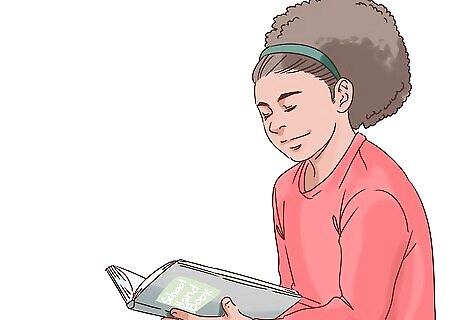
Read your school's rules. A copy of your most recent school handbook provides information about your school's rules, policies, and procedures regarding student speech and expression. If you don't have your own copy, you typically can get one from a school administrative official. Many schools also have the school handbook available on their websites to read or download. The school handbook includes guidelines in a number of areas that potentially implicate your First Amendment rights, including your school's dress code, the distribution of flyers or leaflets on campus, and how to establish student groups. If there is a rule or procedure that violates students' First Amendment rights, make note of it. You may want to speak with a school official to find out how the rule or procedure is applied in practice, and whether students' First Amendment rights are taken into consideration.

Identify your goals. Before you take legal or other action, you must determine what it is you want to accomplish through your actions and what types of changes you want to see happen at your school. You must decide whether you want to make a change that would only affect your particular case, or motivate a broader change to school policies to protect the First Amendment rights of present and future students at your school. Your goals may determine the steps you take. For example, if you have been disciplined for your speech or expression in a way that violates your First Amendment rights, you may only be concerned with defending yourself against a suspension. In cases related to school discipline, there are specific deadlines that you must meet or you will lose your right to challenge the school's decision. In contrast, if you're trying to change a school policy, you may have a little more time to act. Although you probably want the matter resolved as quickly as possible, you can take the time necessary to build support for your case and collect documents and evidence.

Talk to a trusted adult. As a minor, you are limited in many of the things you can do without having an adult on your side. You also typically cannot file a lawsuit, if it comes to that, without the support or assistance of your parent or legal guardian. A teacher or guidance counselor who is supportive and sympathetic to your cause may be able to help you better understand and navigate the school administrative system. You also can contact a nonprofit organization near you, such as the American Civil Liberties Union, that fights for free speech or religious freedom. Depending on the subject matter of the speech or activity your school is suppressing, you also may be able to get help from an organization focused in that area. For example, if your school is refusing to allow a student LGBTQ group on campus, a local gay rights organization may be able to assist you. Civil rights attorneys can help you decide whether it is appropriate to file a lawsuit against your school. Some may be willing to meet with you directly, while others will want to speak with your parent or legal guardian first.













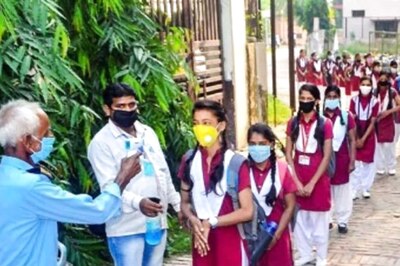





Comments
0 comment